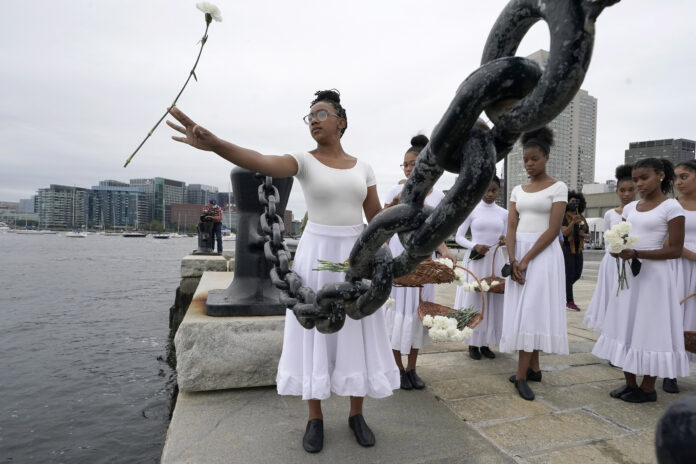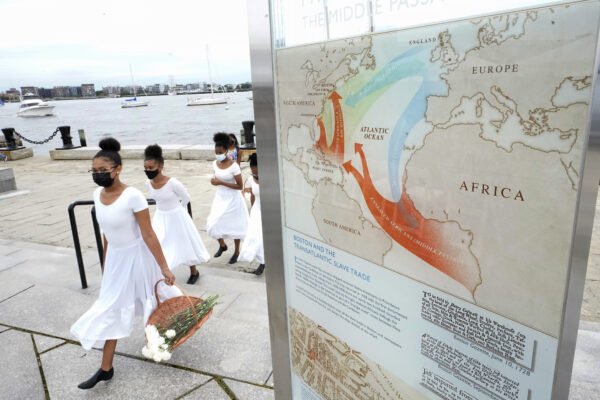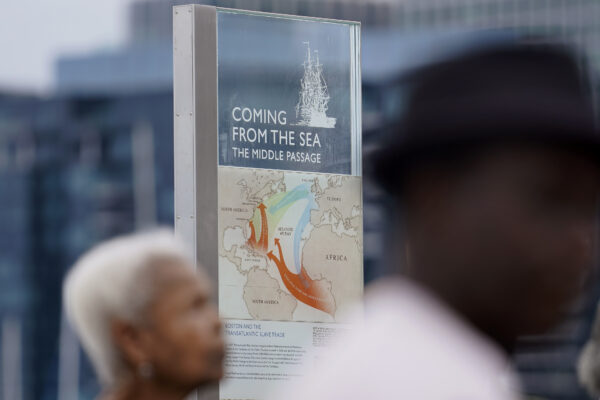
Associated Press
A public marker to remember the enslaved Africans forced to journey across the ocean to toil in the Americas was formally dedicated last month on Boston’s downtown waterfront.
The Middle Passage Port Marker was installed last October at the end of Long Wharf looking out onto Boston Harbor. It is meant to acknowledge Boston’s history of slavery and honor the Africans who were forced into the the transatlantic voyage known as the Middle Passage.
The dedication ceremony included remarks from Michael Creasey, superintendent of the National Parks of Boston and officials from the downtown Museum of African American History.
Names of enslaved members of Boston’s oldest churches were read aloud, and there was a traditional balafon performance by Balla Kouyaté as well as a land acknowledgement statement delivered by Elizabeth Solomon, a member of the Massachusett Tribe at Ponkapoag.
Millions of Africans were sold in the Caribbean and in American cities such as Boston and Newport, Rhode Island, from 1619 to 1865, according to event organizers. Native Americans from local tribes, including the Massachusett, Wampanoag, and Nipmuc, were also enslaved after being taken as prisoners of war, the organizations said.
The marker is part of a broader effort to install historic markers at each of the 31 Middle Passage locations identified by UNESCO. Due to the ongoing coronavirus pandemic, the event was invite only but was live-streamed.




